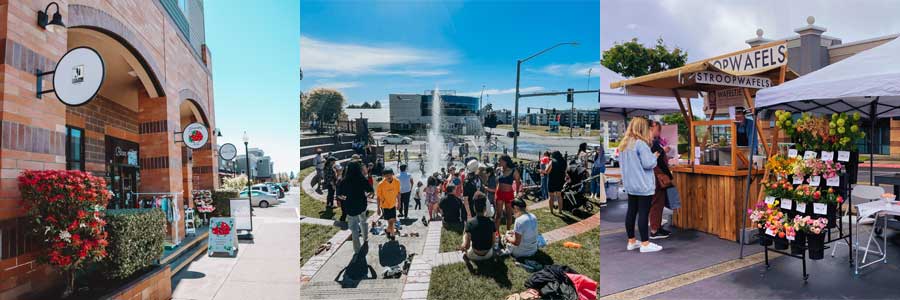I was lucky growing up. I lived in the same town and completed my K-12 journey with the same kids who started out with me. I took advantage of a wide array of extra-curricular activities. I walked, bicycled, drove, and even rode horseback from one end of town to the other. I knew it like the back of my hand. Two grandmothers, two uncles, and an aunt were on hand to share in family celebrations. I belonged.
Of course, things changed when I went off to college. My hometown became a place that I visited; my life was on campus. By the time I returned to my old haunts, the once-strong relationships had waned, my parents had moved, and the remaining family members had either passed on or moved out of the area. The workplace with its long hours and substantive travel requirements became my life’s primary anchor.
I made an effort to connect to community when relocating to North Carolina by joining a church, a women’s organization, and (for a time) a community choir. Yet work and a second round of graduate school continued to impinge on my community building efforts. But for a glorious experience with Special Olympics World Sumer Games, I didn’t recapture the experience of belonging that I’d had in my youth.
Our move to the Pacific Northwest 15 years ago provided the opportunity to craft a new relationship with the place I lived. I established a Portland Metro Area consultancy (with minimal travel!), joined the Chamber of Commerce, signed on for Leadership Beaverton, and attended the Beaverton Citizen’s Police Academy. (It was fascinating!) The area’s agrarian sensibilities led to training as a Master Gardener, regular patronage of the Beaverton Farmer’s Market, and subscriptions to Community Supported Agriculture. I also joined ISing Choir and reveled in making choral music and great friendships while supporting local charities. (ISing has raised over $400,000 to date!) Those efforts paid dividends. I’ve loved living in this community.
As we’ve gotten on in years, we’ve felt the tug to relocate in close proximity to our extended family. We’ve looked somewhat seriously at housing options out of state but opted to stay in the Portland area (at least for the moment) once we sold our home. We currently reside in a rented suburban townhome that’s walking distance from a shopping “village” that provides for all of life’s necessities in addition to a library annex, restaurants, medical services, and full-service gym. The “village” even supports a handful of social events to bring the neighborhood together. It’s lovely, and I enjoy the feeling of being in a small town within the context of a large metropolitan area.
I’ve been reflecting on Dr. Vivek Murthy’s book Together in which he chronicles the deleterious impact of loneliness. He reminds us that human beings are wired for connection; it is our key to survival. We thrive when our orbits regularly include connect with:
- Intimate partners (i.e., family members and close friends)
- Relational allies (i.e., our core social group)
- Collective affiliations (i.e., people with who we share interests and values)
I enjoy a bounty in all three domains. As such, I am understandably reluctant to move out of an area in which I’ve worked hard to forge a sense of place and the social networks that go with it. But, here’s the rub: Things change whether we like it or not. People in close connection move, pass away, or reorient their priorities in response to their changing landscapes. (I just spent the weekend bidding farewell to a close friend who is moving out of state for her dream job.) Organizations that were once cohesive lose key elements of their connective tissue. Changes in physical, cognitive, or emotional capacities influence the activities and relationships that can be pursued.
I’d love to be once-and-done with crafting a sense of community, but that’s not how things work. I’m grateful for the relationships that have stood the test of time and the array of community-based organizations of which I am a part. I’m also grateful for the opportunities to keep in touch with folks who don’t live in close proximity through Zoom, social media, email, and texts. I’ve even availed myself of these technologies to re-establish ties to folks with whom I’d lost touch. But I also realize that community-building never stops. It requires sustained effort, continuous renewal, and perhaps the spirit of adventure to remain vibrant.
I’m up for the challenge. I’m too social not to be. And my health and well-being depend on it.
